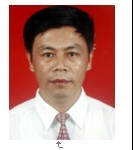-
31浏览
-
0点赞
-
0收藏
-
0分享
-
149下载
-
0评论
-
引用
期刊论文
Anticancer activity of litchi fruit pericarp extract against human breast cancer in vitro and in vivo
Toxicology and Applied Pharmacology 215(2006)168-178,-0001,():
Litchi fruit pericarp (LFP) extract contains significant amounts of polyphenolic compounds and exhibits powerful antioxidative activity against fat oxidation in vitro. The purpose of this study is to confirm the anticancer activity of LFP extract on human breast cancer in vitro and in vivo, and to elucidate the mechanism of its activity. Human breast cancer cells were tested in vitro for cytotoxicity, colony formation inhibition, BrdU incorporation, and gene expression profiling after treatment with LFP extract. Seven nude mice bearing human breast infiltrating duct carcinoma orthotopically were tested for its anticancer activity and expression of caspase-3 in vivo by oral administration of 0.3% (0.3 mg/ml) of LFP watersoluble crude ethanolic extract (CEE) for 10 weeks. LFP extract demonstrated a dose- and time-dependent inhibitory effect on cell growth (IC50=80μg/ml), and it significantly inhibited colony formation and BrdU incorporation of human breast cancer cells. Oligonucleotide microarray analysis identified 41(1.22%) up-regulated and 129 (3.84%) down-regulated genes after LFP water-soluble CEE treatment; the predominantly up-regulated genes were involved in various biological functions including cell cycle regulation and cell proliferation, apoptosis, signal transduction and transcriptional regulation, and extracellular matrix/adhesion molecules; and down-regulated genes were mainly associated with adhesion, invasion, and malignancy of cancer cells. A 40.70% tumor mass volume reduction and significant increase of casepase-3 protein expression were observed in vivo experiment. The findings in this study suggested that LFP extract might have potential anticancer activity on both ER positive and negative breast cancers, which could be attributed, in part, to its DNA damage effect, proliferating inhibition and apoptosis induction of cancer cells through up-regulation and down-regulation of multiple genes involved in cell cycle regulation and cell proliferation, apoptosis, signal transduction and transcriptional regulation, motility and invasiveness of cancer cells; ADP-ribosyltransferase (NAD+; poly (ADP-ribose) polymerase)-like 1 (ADPRTL1), Cytochrome P450, subfamily I (CYP1A1) and Hyaluronan-mediated motility receptor (HMMR) might be the main molecular targets at which LFP water-soluble CEE acted.
【免责声明】以下全部内容由[王修杰]上传于[2011年05月27日 09时10分34秒],版权归原创者所有。本文仅代表作者本人观点,与本网站无关。本网站对文中陈述、观点判断保持中立,不对所包含内容的准确性、可靠性或完整性提供任何明示或暗示的保证。请读者仅作参考,并请自行承担全部责任。
本学者其他成果
同领域成果

 提示
提示

